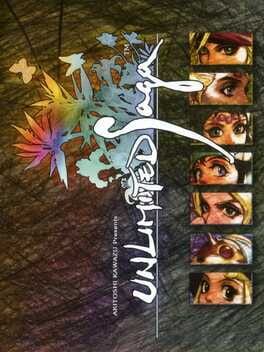kaijuu
38 Reviews liked by kaijuu
Sengoku Rance
2006
Sengoku Rance tinha uma missão complicada: continuar o legado do jogo anterior, que havia expandido o mundo e debatido seu tema de forma excepcional. E você acredita que eles conseguiram fazer melhor? Sengoku Rance traz uma gameplay tática com elementos de Management Game que consegue ser divertida e viciante ao mesmo tempo. É muito foda como você consegue passar por diversas situações com diferentes tipos de estratégias Isso dá um fator replay incrível. O jogo também traz uma mecânica de exploração de dungeons que honestamente, eu ignorei 80% do tempo. Não é muito divertido explorar elas sendo bem sincero.
Sobre a história, ela é do caralho. JAPAN é um país completamente dividido, onde cada estado tem sua história e cultura própria usando de seus líderes para trazer as discussões a mesa. Muito foda como ele consegue falar sobre racismo, a consequência da ganância por poder, a importância de um símbolo e os males da guerra e diversos outros temas de uma maneira engajante, nunca deixando a peteca cair. O elenco no geral ta muito bom, principalmente se tratando dos representantes dos reinos. Porém, por ser um jogo grande, ele tem muitos personagens bosta que só servem pra fetiche puro. Inclusive, o jogo não consegue validar a existência das meninas principais estarem nesse jogo, pois todas só repetem temas que já foram abordados no jogo anterior, pra no final se mostrar uma maquiagem pra colocar uma hscene okzinha no final dos seus clears. Aproveitando a deixa e falando das hscenes, sendo um jogo da franquia, na grande maioria das vezes as hscenes são boas. Porém, tem muita hscene nojenta fetichista, completamente descartáveis. Sobre as rotas, que tristeza falar disso, são rasas demais, considerando a riqueza da true não são divertidas de se fazer, e o pacing é uma merda (tirando a da Kenshin, o IF dela é bem legal). Se eu soubesse que elas seriam assim, nem teria feito fds
Falando sobre a arte, o ORION mais uma vez teve um salto na sua arte, com um char design fodao tendo um monte de CGs lindos dignos de wallpaper. E mais uma vez o SHADE faz uma OST PERFEITA. Impressionante como casa com o clima do jogo, as vezes me pego cantarolando algumas.
Sengoku Rance foi mais um grande passo na franquia. Acho lindo como o universo ta se acumulando aos pouquinhos a cada jogo, construindo algo maior, mas não necessariamente se prendendo a um plot hiper complexo. É simplesmente um aglomerado de boas ideias e criatividade. Eu amo demais essa franquia.
Sobre a história, ela é do caralho. JAPAN é um país completamente dividido, onde cada estado tem sua história e cultura própria usando de seus líderes para trazer as discussões a mesa. Muito foda como ele consegue falar sobre racismo, a consequência da ganância por poder, a importância de um símbolo e os males da guerra e diversos outros temas de uma maneira engajante, nunca deixando a peteca cair. O elenco no geral ta muito bom, principalmente se tratando dos representantes dos reinos. Porém, por ser um jogo grande, ele tem muitos personagens bosta que só servem pra fetiche puro. Inclusive, o jogo não consegue validar a existência das meninas principais estarem nesse jogo, pois todas só repetem temas que já foram abordados no jogo anterior, pra no final se mostrar uma maquiagem pra colocar uma hscene okzinha no final dos seus clears. Aproveitando a deixa e falando das hscenes, sendo um jogo da franquia, na grande maioria das vezes as hscenes são boas. Porém, tem muita hscene nojenta fetichista, completamente descartáveis. Sobre as rotas, que tristeza falar disso, são rasas demais, considerando a riqueza da true não são divertidas de se fazer, e o pacing é uma merda (tirando a da Kenshin, o IF dela é bem legal). Se eu soubesse que elas seriam assim, nem teria feito fds
Falando sobre a arte, o ORION mais uma vez teve um salto na sua arte, com um char design fodao tendo um monte de CGs lindos dignos de wallpaper. E mais uma vez o SHADE faz uma OST PERFEITA. Impressionante como casa com o clima do jogo, as vezes me pego cantarolando algumas.
Sengoku Rance foi mais um grande passo na franquia. Acho lindo como o universo ta se acumulando aos pouquinhos a cada jogo, construindo algo maior, mas não necessariamente se prendendo a um plot hiper complexo. É simplesmente um aglomerado de boas ideias e criatividade. Eu amo demais essa franquia.
Ecco the Dolphin
1992
Gungrave
2002
ObsCure
2004
Existe muita competência neste jogo e um carisma bem típico dos survival horrors do início dos anos 2000. Um survival horror cooperativo não poderia ser mais consciente de sua proposta. Uma trama que exagera em tropos escolares com um toque tão simples que te faz querer terminar o jogo só para ver o quão genuína será sua execução. Pois eu me surpreendi com o quão coeso este jogo é e o quão contemplativo ele pode ser! Enquanto os personagens têm um sabor meio ameno, a trilha sonora conduz os pontos de intensidade com um esmero absurdo! Sério, este jogo é como um frasco de guloseimas que você esqueceu atrás do armário e acaba de encontrar! Ele vai te deixar ainda mais feliz ao compartilhar com alguém!
Puyo Puyo Tetris
2014
Puyo Puyo Tetris is a nice start for anyone who wants to learn how to play both games. The adventure mode is almost a long tutorial with a lot of training. If u already know the basics, you will get 3 stars on each level really fast, and thats the whole thing! They put a lot of effort into teaching you HOW to play their game, exercise-specific strategies, and all!
The story is cute and simple with INCREDIBLE character design (4 real, I love this SM to the point where I'm sad that their just flavor for this game), they do a good job making you stay playing this mode.
Anyway, this game was made for being played online; once I played against someone who wasn't a machine, my experience became joy and everything made so much sense. It's really impressive how they put so much effort into teaching just for the player to have some fun.
Its sad that nobody plays this anymore (probably their playing puyo puyo tetris 2, but still).
Puyo Puyo Tetris is great.
ty to my gf who gave me this :)
ps: why tf they make you pop 100.000 puyos?
The story is cute and simple with INCREDIBLE character design (4 real, I love this SM to the point where I'm sad that their just flavor for this game), they do a good job making you stay playing this mode.
Anyway, this game was made for being played online; once I played against someone who wasn't a machine, my experience became joy and everything made so much sense. It's really impressive how they put so much effort into teaching just for the player to have some fun.
Its sad that nobody plays this anymore (probably their playing puyo puyo tetris 2, but still).
Puyo Puyo Tetris is great.
ty to my gf who gave me this :)
ps: why tf they make you pop 100.000 puyos?
final fantasy vii forte como sempre foi: todo elemento narrativo toma forma na nossa relação espiritual com o mundo, seja ele a natureza, nosso legado, a internet, o destino ou os confins da realidade
esse pessoal da página de reviews do site é muito fraquinho, o final é a melhor parte, achei que vocês tivessem abandonado o barco depois do remake
esse pessoal da página de reviews do site é muito fraquinho, o final é a melhor parte, achei que vocês tivessem abandonado o barco depois do remake
Death Stranding
2019
Death Stranding
2019
Feeling small, the weight of your body and cargo shifting moment to moment, you wander through landscapes with a real sense of scale and elemental menace. Marking out your favourite routes, you build up memories of the texture of the earth and the incline of the terrain. America has been swallowed by a rift in deep time, emerging as (Iceland?!) a volcanic wasteland haunted by the dead. Tethered to others via ghostly gestures and transient structures, every trip has an eerie loneliness that rises in waves.
The closer this gets to Metal Gear, the more it fumbles, especially with movement a little too clumsy for combat. Spectral and human entities are at their most affecting when glimpsed just out of sight or over the horizon, often throwing off your concentration for a moment, resulting in hilarious mistakes. The deliveries are (mostly) emptied out of significant narrative content or reward, a minimalism that just leaves you alone with the landscape.
The closer this gets to Metal Gear, the more it fumbles, especially with movement a little too clumsy for combat. Spectral and human entities are at their most affecting when glimpsed just out of sight or over the horizon, often throwing off your concentration for a moment, resulting in hilarious mistakes. The deliveries are (mostly) emptied out of significant narrative content or reward, a minimalism that just leaves you alone with the landscape.
Death Stranding
2019
I was thinking, trudging joylessly over wet rocks through glacial streams, my controller making the sounds of a crying baby, that no game has ever made me feel this way before — this sad, of course, but this peculiar mix of weary and curious, of wanting to do something despite the crushing futility of it all. Kojima's bizarrely over-engineered menus and mundane mechanics are so expertly deployed to elicit exactly this paradox, it is no wonder the game is so divisive. The game-ness of the game is turned against you so as to add experiential weight to its surface thematics. And so continuing on this line of thinking no game has done this before (besides Shenmue), made its sadness manifest so physically in the body of the player. I came to realise no film or book or piece of music has either, and so maybe, just maybe this is a big deal. If we are looking to art to make sense of the moment of our own extinction event, then I can think of no better work than Death Stranding to thicken time, to underscore the heavy intensity of the world beyond the human, to remind us that a single rock could be the difference between the end of the world and another tomorrow.
Death Stranding
2019
Some thoughts that I had stuck in my head:
Explore the world looking for a solution, a connection. Together. Maybe not physically, not by the same routes, maybe not delivering the same
It is difficult for Death Stranding to reach you playing it alone. Its nature emerges more easily online, and it's a great gesture and a statement of intent that you don't need a subscription to ps plus.
Kojima presents a digital world that is difficult to interpret and unite in words, a fiction that shoots directly into our reality.
Cursed, heartfelt, but also emotional. embrace the connections between things, but question them. a celebration of human duality
More prophetic than MGS2 and with better observation, generalizing and at the same time specifying the difficulties of our day to day, articulating them in the total art of videogames.
From the most abstract to the most literal, collective fears, traumas and very recognizable memories materialized. Visible, audible, and even palpable in an alien America full of dualities, of people who only intuit and show themselves through holograms and numbers.
But we are here. Maybe not next door, but in the same world. And the proof is the ladder that I have used to create an improvised bridge, I have left it here, for you, for me, for everyone. And that rope on the cliff, that capsule, that package on the ground. We are here.
Where the rejection of what forces us to leave this world is manifested in a kind of allergy for those who are more akin to these fears or have experienced them to the limit.
Where people are baptized for their present, for their office and condemned for their past. Where the heroes deliver packages and letters. They come to our futuristic shacks and install an esoteric Internet.
Everything is Sam Porter Bridges, whose name makes it STRONGLY EVIDENT what Death Stranding is about, and at the same time no, you cannot perfectly encompass anything as complex as earthly and afterlife connections, the natural and the mechanical, the Software and the Hardware, the "Ka" and "ha". reality and dreams. Much of Death Stranding's recontextualized iconography seems to suggest that.
It is a work that calls for thinking in an unprecedented way about it, because it offers an unprecedented reinterpretation of the transition and relationship with our environment, especially for gaming standards, obsessed with the mechanical-narrative relationship or the challenge, the suggestion and the satisfaction as a criterion to generate interpretations that are autopsies or descriptions. That in the best case.
At worst you have Far Cry 3.
Every species has the game in different facets and areas as a form of intellectual and emotional connection.
Children play and learn/relate, animals play to understand each other. We play to replace war.
Even before having sex we played.
Homo ludens. And Kojima welcomes a lot of this.
We need to be playful without losing focus.
There is no need for subtlety, just answer honestly to human questions. Use the forms of play as a response to the bitter obstacles of reality.
The example is the "Social Strand System", a mechanical reinterpretation of social networks where the game of deliveries and recovery of packages, manufactures and constructions has an impact on likes and statistics, but also on turning the environment into something more livable and peaceful, at the same time, shows that a more altruistic and ethical form of social interaction is possible.
It sounds naive to say that the reconstruction of the collective environment in an online video game is a lesson in altruism and community, even more so when there are likes involved, but the exercise of life begins somewhere, and now that we are waking up from this techno delirium -competitive utopian in which social networks had us flooded, now that we know how important they are to connect with each other more than to raise our ego, this "Social Strand System" shines more than in 2019.
Through the textures of slow gaming, an experiment of self-knowledge and updating is proposed, there is the unprecedented, in how the game confronts us with situations without necessarily connecting their thoughts or ideas and still achieving a certain cohesion. As in life, no one knows "what it is about" and yet we walk through it with what we own and what others leave for us.
And for a game that wants to embrace these themes without giving up the nature of its medium, its foundation, it's something really admirable.
-------------------
Not a single day goes by that I don't think about Death Stranding. Perhaps because of what has been happening in the world since 2020.
On arrival at Port Knot City.
How the corpses of people who have left explode, leaving an emotional and physical void in the form of a crater. Cities with people locked up, invisible. In the networks. In their inverted rainbows. How work becomes playing with its dozens of tools to transport, how enemies are my reflection, silence, likes, photos, stories... In life, how life can be everywhere.
And I can't even put into words practically anything that this game is for me. I plan to return to it in 2023 now that a sequel has been announced that begs the question: Should we have Connected?
Explore the world looking for a solution, a connection. Together. Maybe not physically, not by the same routes, maybe not delivering the same
It is difficult for Death Stranding to reach you playing it alone. Its nature emerges more easily online, and it's a great gesture and a statement of intent that you don't need a subscription to ps plus.
Kojima presents a digital world that is difficult to interpret and unite in words, a fiction that shoots directly into our reality.
Cursed, heartfelt, but also emotional. embrace the connections between things, but question them. a celebration of human duality
More prophetic than MGS2 and with better observation, generalizing and at the same time specifying the difficulties of our day to day, articulating them in the total art of videogames.
From the most abstract to the most literal, collective fears, traumas and very recognizable memories materialized. Visible, audible, and even palpable in an alien America full of dualities, of people who only intuit and show themselves through holograms and numbers.
But we are here. Maybe not next door, but in the same world. And the proof is the ladder that I have used to create an improvised bridge, I have left it here, for you, for me, for everyone. And that rope on the cliff, that capsule, that package on the ground. We are here.
Where the rejection of what forces us to leave this world is manifested in a kind of allergy for those who are more akin to these fears or have experienced them to the limit.
Where people are baptized for their present, for their office and condemned for their past. Where the heroes deliver packages and letters. They come to our futuristic shacks and install an esoteric Internet.
Everything is Sam Porter Bridges, whose name makes it STRONGLY EVIDENT what Death Stranding is about, and at the same time no, you cannot perfectly encompass anything as complex as earthly and afterlife connections, the natural and the mechanical, the Software and the Hardware, the "Ka" and "ha". reality and dreams. Much of Death Stranding's recontextualized iconography seems to suggest that.
It is a work that calls for thinking in an unprecedented way about it, because it offers an unprecedented reinterpretation of the transition and relationship with our environment, especially for gaming standards, obsessed with the mechanical-narrative relationship or the challenge, the suggestion and the satisfaction as a criterion to generate interpretations that are autopsies or descriptions. That in the best case.
At worst you have Far Cry 3.
Every species has the game in different facets and areas as a form of intellectual and emotional connection.
Children play and learn/relate, animals play to understand each other. We play to replace war.
Even before having sex we played.
Homo ludens. And Kojima welcomes a lot of this.
We need to be playful without losing focus.
There is no need for subtlety, just answer honestly to human questions. Use the forms of play as a response to the bitter obstacles of reality.
The example is the "Social Strand System", a mechanical reinterpretation of social networks where the game of deliveries and recovery of packages, manufactures and constructions has an impact on likes and statistics, but also on turning the environment into something more livable and peaceful, at the same time, shows that a more altruistic and ethical form of social interaction is possible.
It sounds naive to say that the reconstruction of the collective environment in an online video game is a lesson in altruism and community, even more so when there are likes involved, but the exercise of life begins somewhere, and now that we are waking up from this techno delirium -competitive utopian in which social networks had us flooded, now that we know how important they are to connect with each other more than to raise our ego, this "Social Strand System" shines more than in 2019.
Through the textures of slow gaming, an experiment of self-knowledge and updating is proposed, there is the unprecedented, in how the game confronts us with situations without necessarily connecting their thoughts or ideas and still achieving a certain cohesion. As in life, no one knows "what it is about" and yet we walk through it with what we own and what others leave for us.
And for a game that wants to embrace these themes without giving up the nature of its medium, its foundation, it's something really admirable.
-------------------
Not a single day goes by that I don't think about Death Stranding. Perhaps because of what has been happening in the world since 2020.
On arrival at Port Knot City.
How the corpses of people who have left explode, leaving an emotional and physical void in the form of a crater. Cities with people locked up, invisible. In the networks. In their inverted rainbows. How work becomes playing with its dozens of tools to transport, how enemies are my reflection, silence, likes, photos, stories... In life, how life can be everywhere.
And I can't even put into words practically anything that this game is for me. I plan to return to it in 2023 now that a sequel has been announced that begs the question: Should we have Connected?
I was NOT expecting this level of commitment/compromise when I walked in for my first culinary lesson, nor when I started working in restaurants, nor when I downloaded this game (that is grotesquely similar to how a real restaurant works) just to see what it is about. It is funny that these three experiences sucked me in so abruptly that I found myself obliged to hurry to get things done and learn everything as fast as I could.
The kitchen experience blows me away, always will, and when I say kitchen I don’t mean only the cooking itself, I mean the physical kitchen, this white, bright, full of chemistry and mysterious micro explosions, hyper sanitized and simultaneously desperately messy space - the underlying philosophy of the whole place is to physically contain any type of chaos, be it contamination, disorganization, fire (literally and figuratively), so the layout design of every restaurant kitchen tries to emulate this accident-proof room where everything has a correct place, position, moment, which backfires in being a tense, explosive, often careless experience. This dynamic is cleverly translated in chronometers and queue lines, step by step, conciliating tasks - a pretty amazing job imo.
And of course, the cooking, maybe as a spiritual activity, as in connecting with ancestors and humanity through the smells and textures and the (many) feelings that I feel for food, maybe as a profound cultural deep dive, understanding the many ways to build even the most simple and classic recipes - and why their traditional blueprint work so well in the first place - maybe as an art form even, an expression from the soul of the deep abstract desires of not survival but living, and also an obvious scientific exploration, because it is awesome and scary how far we got from picking fruits from a tree to cultivating yeast and then having the resources/the control over the land/time to prepare enormous feasts for many people to enjoy together abundantly, to baking pink biscuits and using liquid nitrogen to build beautiful shapes of taste. And the restaurant aspect of it is a complex manifestation of the crave for oneness, the want to be together, to provide, to share, and to love, which is: though destructive and passionate and sometimes too much of a proud control freak, it only wants you well served and happily digesting.
Chef Life is careful with every detail of this bittersweet, humane infatuation.
It also has a wholesome approach, offering the challenge to rush and memorize every recipe and focus on the mise en place to get the michelin star (30+ hours in and still didn’t) or if you want to play it laid back, unpressured, creatively, it is also an option. I was impressed with these accessibility options, makes the whole experience so beautifully welcoming.
The kitchen experience blows me away, always will, and when I say kitchen I don’t mean only the cooking itself, I mean the physical kitchen, this white, bright, full of chemistry and mysterious micro explosions, hyper sanitized and simultaneously desperately messy space - the underlying philosophy of the whole place is to physically contain any type of chaos, be it contamination, disorganization, fire (literally and figuratively), so the layout design of every restaurant kitchen tries to emulate this accident-proof room where everything has a correct place, position, moment, which backfires in being a tense, explosive, often careless experience. This dynamic is cleverly translated in chronometers and queue lines, step by step, conciliating tasks - a pretty amazing job imo.
And of course, the cooking, maybe as a spiritual activity, as in connecting with ancestors and humanity through the smells and textures and the (many) feelings that I feel for food, maybe as a profound cultural deep dive, understanding the many ways to build even the most simple and classic recipes - and why their traditional blueprint work so well in the first place - maybe as an art form even, an expression from the soul of the deep abstract desires of not survival but living, and also an obvious scientific exploration, because it is awesome and scary how far we got from picking fruits from a tree to cultivating yeast and then having the resources/the control over the land/time to prepare enormous feasts for many people to enjoy together abundantly, to baking pink biscuits and using liquid nitrogen to build beautiful shapes of taste. And the restaurant aspect of it is a complex manifestation of the crave for oneness, the want to be together, to provide, to share, and to love, which is: though destructive and passionate and sometimes too much of a proud control freak, it only wants you well served and happily digesting.
Chef Life is careful with every detail of this bittersweet, humane infatuation.
It also has a wholesome approach, offering the challenge to rush and memorize every recipe and focus on the mise en place to get the michelin star (30+ hours in and still didn’t) or if you want to play it laid back, unpressured, creatively, it is also an option. I was impressed with these accessibility options, makes the whole experience so beautifully welcoming.
NieR Re[in]carnation
2021
thesis: yoko taro is often listed among the foremost auteurs of the medium but the reality is his strengths lie in a kind of prototypical 'video game' method of work, borne out of necessity, that prioritizes collaboration between a consistent set of screenwriters, an unorthodox style of design targeting emotional resonance, and a plethora of unique flourishes specifically aimed at facilitating the empathy, immersion, and connection of its players (researching drakengard 1s development makes this especially apparent - it's arguably not even a yoko taro game in the usually defined sense of the term). his works, when in production, are thwarted frequently by compromise, limitation, and sacrifice - stumbling blocks, all in service of eventually reflecting a well-trodden title which charms on the virtues of its rustic artistry. wear and tear and a heart of gold. this style of development, marked by haste and experimentation and fueled by pure zeal and love for the craft, perhaps reveals why the pillars of video games, the codified monomythic genres and the primordial archetypes and the frequent allusions to popular work, so often impress themselves upon yoko taro games, and why so often his work succeeds in connecting to people where other talent may struggle. the video game of it all, if you will. incidentally, this collaborative style allows for a large breadth of potential interpretation and analysis afforded towards his work, and ive long maintained that a YT game is at its most interesting when it's not about what he intended for it to be about. did the tragedies in nier gestalt sometimes fall flat for you? me too! thankfully that's not what the game is about, at least not to me. in sum: the work of many, each willing and able to leave a fingerprint on the mosaic of development, enriches the product in the long-run, creating a full-bodied textured work of art and contributing immensely to the humanity at the core of these games. if any given chord strikes you as dull, a separate melody will enchant you - that's the nature of YT's games. they're artisan because of what they value and because of how they achieve their mission statement, and especially because of their passion, always demonstrated by the little details in these games. passion will always reveal itself, but so too will a dearth of passion reveal itself.
proof: nier re[in]carnation
if these games worked because of a certain je ne sais quois shared by the collaborative nature of a team in a trying work environment, i don't think my prospective next project would be a game in an exploitative genre where a new team of writers handled an endless barrage of one-note vignettes while YT sat back, nodded halfheartedly at his desk, and tried to string every vignette together using an overarching plot catering to obsessive drakennier fans. just my two cents
proof: nier re[in]carnation
if these games worked because of a certain je ne sais quois shared by the collaborative nature of a team in a trying work environment, i don't think my prospective next project would be a game in an exploitative genre where a new team of writers handled an endless barrage of one-note vignettes while YT sat back, nodded halfheartedly at his desk, and tried to string every vignette together using an overarching plot catering to obsessive drakennier fans. just my two cents
Unlimited SaGa
2002
é claro que depois de cinquenta anos de treino hoje a gente considera videogame algo "intuitivo", mas não é uma prática psico ou fisiologicamente natural. minha mãe sofria muito quando tinha que apertar pra frente e o botão de pulo ao mesmo quando eu tentava fazer ela jogar donkey kong country 3, e isso não quer dizer que ela era incapaz ou que o jogo "não ensinava direito", mas sim que ela não havia praticado tanto quanto eu. a graça de unlimited saga é que ele é impraticável, inacostumável, mesmo se você gostar de videogame, gostar de rpg, gostar de jogo por turno, gostar de jogo de tabuleiro ou gostar de outros saga.
não dá pra dizer que ele foi feito pra alguém. intuitivamente ninguém vai orbitá-lo. nem mesmo os criadores! foi um esforço tornar ele tão obtuso quanto é, uma filosofia de atrito, documentada. não acho nem que é um jogo que o kawazu fez pra si mesmo. entretanto, também não é um exercício de hostilidade: o jogo é super agradável esteticamente. ele te chama e te acaricia, te dá a tal da dopamina em todos os momentos de aposta, se revela, mas sua profundidade é tamanha que sempre vai faltar algo para você conseguir entender completamente. ele te manipula em seus mistérios, no que deixa de revelar, nos seus resultados imprevisíveis, nas maldadezinhas ocasionais e nos presentes inesperados.
é legal também que a única cena super animada e elaborada seja no mesmo lugar para todos os personagens — eu sempre ficava ansioso pra chegar em regina leone pra ver como iam mostrar o festival dessa vez. serve como o núcleo de familiaridade entre todas as histórias, visto que o contexto sinestésico delas também varia muito. você aprende bastante cada vez que completa uma, mas nunca o suficiente pra próxima ser fácil ou só uma lapidação de conceitos.
todos os momentos de unlimited saga são como jogar videogame pela primeira vez. eu nem lembro como foi essa sensação de verdade porque na minha cabeça eu já nasci usando uma meia do Sonic, mas agora consigo sentir esse ataque meio esquizo aos sentidos que é apertar um botão e sentir que tenho que lutar com minha própria mente com o qual já tinha me acostumado como se fosse novo. sensação de projeção astral em outro mundo onde não existe nenhuma convenção artística e tudo é cognitivamente violento. não gostaria de morar lá, mas visitar é sempre uma diversão.
não dá pra dizer que ele foi feito pra alguém. intuitivamente ninguém vai orbitá-lo. nem mesmo os criadores! foi um esforço tornar ele tão obtuso quanto é, uma filosofia de atrito, documentada. não acho nem que é um jogo que o kawazu fez pra si mesmo. entretanto, também não é um exercício de hostilidade: o jogo é super agradável esteticamente. ele te chama e te acaricia, te dá a tal da dopamina em todos os momentos de aposta, se revela, mas sua profundidade é tamanha que sempre vai faltar algo para você conseguir entender completamente. ele te manipula em seus mistérios, no que deixa de revelar, nos seus resultados imprevisíveis, nas maldadezinhas ocasionais e nos presentes inesperados.
é legal também que a única cena super animada e elaborada seja no mesmo lugar para todos os personagens — eu sempre ficava ansioso pra chegar em regina leone pra ver como iam mostrar o festival dessa vez. serve como o núcleo de familiaridade entre todas as histórias, visto que o contexto sinestésico delas também varia muito. você aprende bastante cada vez que completa uma, mas nunca o suficiente pra próxima ser fácil ou só uma lapidação de conceitos.
todos os momentos de unlimited saga são como jogar videogame pela primeira vez. eu nem lembro como foi essa sensação de verdade porque na minha cabeça eu já nasci usando uma meia do Sonic, mas agora consigo sentir esse ataque meio esquizo aos sentidos que é apertar um botão e sentir que tenho que lutar com minha própria mente com o qual já tinha me acostumado como se fosse novo. sensação de projeção astral em outro mundo onde não existe nenhuma convenção artística e tudo é cognitivamente violento. não gostaria de morar lá, mas visitar é sempre uma diversão.
recentemente eu assisti todos os missão impossível e percebi que no meio da série a coisa se torna mítica. o ethan hunt alcança um ar meio divino — não é mais surpreendente que ele esteja três passos à frente de todos, que ele vai conseguir carimbar a missão como possível. a tensão deixa de ser "será que ele consegue?" e passa a ser "como ele vai conseguir dessa vez?". começa a se tornar um gênero literário hermético por si só quando a história cria um cânone tão grande que suas referências passam a ser essa própria história escrita por outros nomes, em outras épocas e portanto com outras mensagens. o império pós-materialista conseguiu tornar o nome (de alguém, de algo) tão sagrado que ele guarda uma carga identitária que representa um universo por si só com sua própria ontologia artificial, palavra que também carrega cada vez menos peso negativo em uma dinâmica de tulpa que permite buscar isso como desejável mesmo assim.
a narrativa da identidade secreta não trata tanto assim do que os outros fazem pra te desmascarar e sim das conflitos internos de negar todas as suas conquistas que ocorreram até aqui; é uma briga de ego: o ego jovem da identidade nova e o ego velho da antiga. o ethan hunt passou sete filmes em paz porque ele é orgulhoso de seus feitos em todas as dimensões de sua existência, ele aceita a deificação, se banha nos sacrifícios que lhe oferecem, entende que o mundo inteiro é missão impossível; o kiryu, por outro lado, tem uma consciência meio além-jogo: todos os personagens de like a dragon existem como se like a dragon fosse tudo o que importasse no universo, mas ele não. ele tenta escapar dessa ficção, tocar em problemas reais, ter prazeres reais, fugir da reencarnação do autor, mas também sabe que se fizer isso todos os seus feitos anteriores terão sido em vão e todas as memórias vão se esvair. tudo o que ele tem agora são memórias. ele é quem teria que se sacrificar para um mundo que vai ter que, por obrigação, esquecer que ele existe.
um personagem conseguiria decidir isso bem facilmente caso fosse um aspecto importante Temático de uma História, mas quem disse que ele é um personagem?
a narrativa da identidade secreta não trata tanto assim do que os outros fazem pra te desmascarar e sim das conflitos internos de negar todas as suas conquistas que ocorreram até aqui; é uma briga de ego: o ego jovem da identidade nova e o ego velho da antiga. o ethan hunt passou sete filmes em paz porque ele é orgulhoso de seus feitos em todas as dimensões de sua existência, ele aceita a deificação, se banha nos sacrifícios que lhe oferecem, entende que o mundo inteiro é missão impossível; o kiryu, por outro lado, tem uma consciência meio além-jogo: todos os personagens de like a dragon existem como se like a dragon fosse tudo o que importasse no universo, mas ele não. ele tenta escapar dessa ficção, tocar em problemas reais, ter prazeres reais, fugir da reencarnação do autor, mas também sabe que se fizer isso todos os seus feitos anteriores terão sido em vão e todas as memórias vão se esvair. tudo o que ele tem agora são memórias. ele é quem teria que se sacrificar para um mundo que vai ter que, por obrigação, esquecer que ele existe.
um personagem conseguiria decidir isso bem facilmente caso fosse um aspecto importante Temático de uma História, mas quem disse que ele é um personagem?
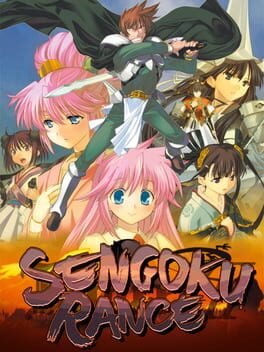
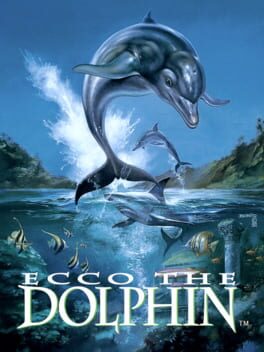
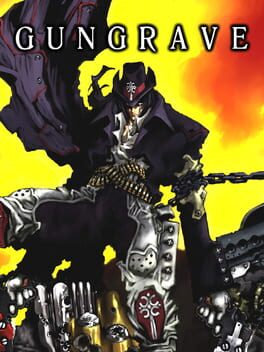
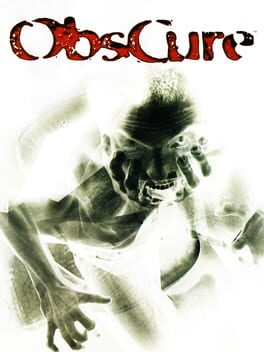
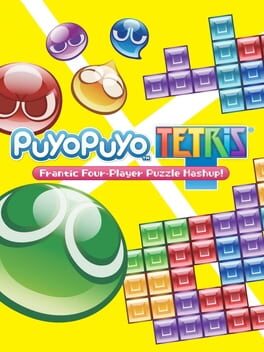


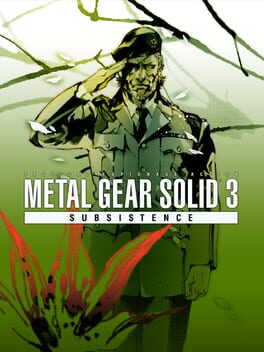
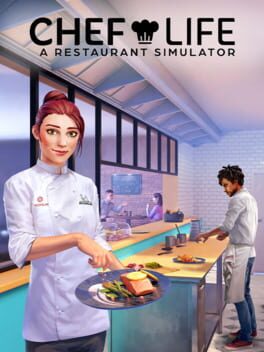
![NieR Re[in]carnation](https://images.igdb.com/igdb/image/upload/t_cover_big/co7bm4.jpg)
